Teeth whitening is a non-invasive procedure that seeks to improve dental aesthetics by lightening and whitening teeth.
It is essential that teeth whitening be performed by a dentist, as the procedures and agents used are more controlled and powerful than over-the-counter products.
Opting for the care of a dental professional guarantees effective and safe results, without risks for the patient.
Contents
- 1 What is teeth whitening?
- 2 Why do teeth darken?
- 3 Who is teeth whitening recommended for?
- 4 From what age can I have the treatment?
- 5 How is teeth whitening done?
- 6 Care after treatment
- 7 How much last a dental whitening?
- 8 How often can teeth whitening be done?
- 9 Advantages of teeth whitening
- 10 Contraindications to teeth whitening
- 11 Does it have side effects?
- 12 Types of teeth whitening
- 13 Teeth whitening results
- 14 Do you want to have your teeth whitened?
What is teeth whitening?
Teeth whitening is a technique that seeks to lighten teeth to achieve a whiter and longer-lasting smile.
Why do teeth darken?
Over time, it is common for teeth to darken and acquire a yellowish hue, especially due to the consumption of certain foods and drinks with strong pigments.
For example, tea, coffee, wine, curry and soy sauce are known to accelerate this tooth darkening. Likewise, sugary drinks, candy, and vinegar can also affect the tone of your teeth.
However, tobacco is the main culprit that causes teeth to turn yellow.
Who is teeth whitening recommended for?
Any individual who experiences darkening or yellowing of their teeth can choose to undergo teeth whitening.
However, it is essential to seek care in specialized dental clinics, such as our dental clinic in Tijuana, where a professional will evaluate the case and offer the best solution for treatment.
From what age can I have the treatment?
Before proceeding with teeth whitening, it is important to perform an oral examination to rule out any other oral pathology.
Generally, it is considered appropriate to perform teeth whitening once you have passed adolescence. However, specific circumstances may arise in which treatment may need to be performed before this age.
In such cases, it is crucial to consult a specialist, which is why we always recommend contacting the dentist to discuss the case and allow him to evaluate the suitability of the procedure.
How is teeth whitening done?
Before starting the whitening process, it is essential to perform a complete cleaning of the mouth and provide the patient with a detailed explanation of how this procedure works.
Subsequently, it is necessary to determine the original color of the teeth and the cause of their current shade. This allows you to select the most appropriate type of whitening and establish realistic expectations about the expected results.
It is crucial that the treatment is carried out by professionals with experience in this technique, in facilities that provide guarantees and generate confidence for the patient.
There are various methods of teeth whitening, each with its own characteristics. To learn more about them, we invite you to continue reading in the “Types of teeth whitening” section.
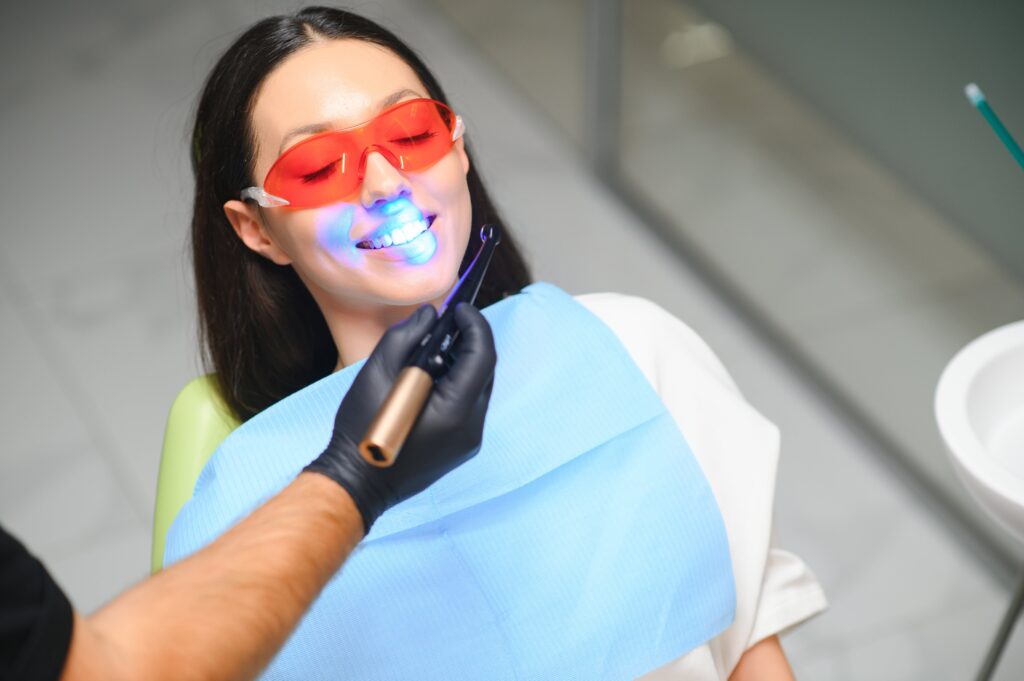
Care after treatment
It is crucial to be cautious during the 72 hours following the lamp treatment phase, as the teeth become more permeable during this period. Therefore, it is recommended to follow a “white diet”, avoiding foods and drinks that can intensely pigment them, such as tea, wine, chocolate, red fruits, coffee, soy, among others.
Once this period has passed, it is no longer necessary to take special precautions after teeth whitening and you can return to daily life.
Although whitening results are stable in the long term, they are not permanent. Over time, teeth tend to age and darken, and the speed and degree of this process will depend on the patient’s individual habits.
How much last a dental whitening?
After understanding what whitening entails and how it is carried out, it is natural that the question arises about the duration of the treatment, which varies according to each case and each individual.
As we mentioned above, with the proper use of technologies like our Philips Zoom Lamp, the results can last for years. However, it is important to keep in mind that the treatment is not a permanent process over time.
The whitening system with the Philips Zoom Lamp stands out for its safety, effectiveness and speed. In just one session, patients can notice a noticeable improvement in the color of their teeth.
Despite the passing of the years, teeth treated with teeth whitening will always retain a superior tone compared to those that never underwent this type of treatment.
How often can teeth whitening be done?
The frequency between professional teeth whitening treatments is not precisely established, as it varies according to the individual needs of each person.
For this reason, it is essential that a dentist always supervises the process and is the professional who determines the convenience of performing a second teeth whitening.
It is recommended to attend annual check-ups so that the dentist can evaluate the evolution of the treatment and offer the best recommendations to maintain the whiteness of the teeth.
Advantages of teeth whitening
Whiter smile and aesthetic improvement: A well-kept smile enhances the features, and white teeth are an excellent letter of introduction. Maintaining white and healthy teeth is a great advantage of teeth whitening.
Increased self-esteem: A whiter and more uniform smile can improve self-esteem and make us feel better.
Immediate results: Teeth whitening offers quick results. From the first session, it is possible to notice an improvement in the tone of the teeth.
Painless: This treatment is painless and does not require anesthesia, making it comfortable for the patient.
Tooth-friendly: Contrary to popular belief, teeth whitening does not damage teeth and does not cause tooth sensitivity.
Compatible with other treatments: Performing teeth whitening is not incompatible with other dental aesthetic treatments. You can continue caring for your teeth after completing the scheduled sessions.
Contraindications to teeth whitening
We can affirm that teeth whitening is a procedure that is performed safely and does not have any type of negative effects. After undergoing this treatment, you will not experience any type of sequelae, neither in physical nor aesthetic terms.
Does it have side effects?
It is common to wonder if teeth whitening causes pain. The reality is that this treatment does not cause discomfort or pain to the patient.
Additionally, it is important to note that teeth whitening does not damage tooth enamel and its results do not fade quickly, making it a long-lasting option.
Finally, it is important to mention that teeth whitening does not permanently increase tooth sensitivity. Although it is possible to experience some sensitivity during treatment, this is temporary and disappears upon completion of treatment.
Types of teeth whitening
For those wondering which is the most suitable teeth whitening, it is important to note that there are several types available.
The choice of the best teeth whitening method for each specific case will be based on the evaluation carried out by our specialists, who will consider the current state of the teeth and their color to determine the most appropriate treatment.
Teeth whitening by photoactivation
One of the outstanding methods among the types of teeth whitening is this technique, which is characterized by being quick, effective and simple, achieving significant results. The ZOOM teeth whitening system stands out as one of the most innovative treatments that offers short-term results.
This procedure is performed in the dental clinic, using an exclusive whitening gel that is activated by the revolutionary ZOOM! lamp. from Philips. Both the light and the gel work together, gently penetrating the teeth to dissolve stains and lighten their color.
Teeth whitening with splint at home
This is one of the most comfortable and fastest treatments available. For a period of 15 to 30 days, the patient will wear personalized splints for a few hours a day, on which a gel will be applied that will act on the teeth.
Internal teeth whitening
Another method of teeth whitening is internal whitening, which is used in cases of devitalized or endodontically treated teeth that have darkened. In this procedure, it is required to whiten the tooth from the inside.
A whitening substance is introduced into the crown of the tooth, which is left for about a week. The result obtained is then evaluated and, if necessary, an additional session is considered based on the results.
Combined Whitening
The combined or mixed whitening treatment involves both in-clinic teeth whitening performed with a lamp in a single session and at-home whitening.
The first phase is carried out at home, where the patient applies a whitening gel in personalized trays for the period set by the dentist to obtain the best results. This stage usually lasts between 15 and 30 days.
In the second phase, teeth whitening is performed in the dental office using a cold LED light lamp. In a single appointment, between 3 and 4 work sessions of 10 minutes each are carried out.
Teeth whitening results
To show the nature and the impressive change that smiles experience thanks to our treatments, here are some examples of before and after teeth whitening.
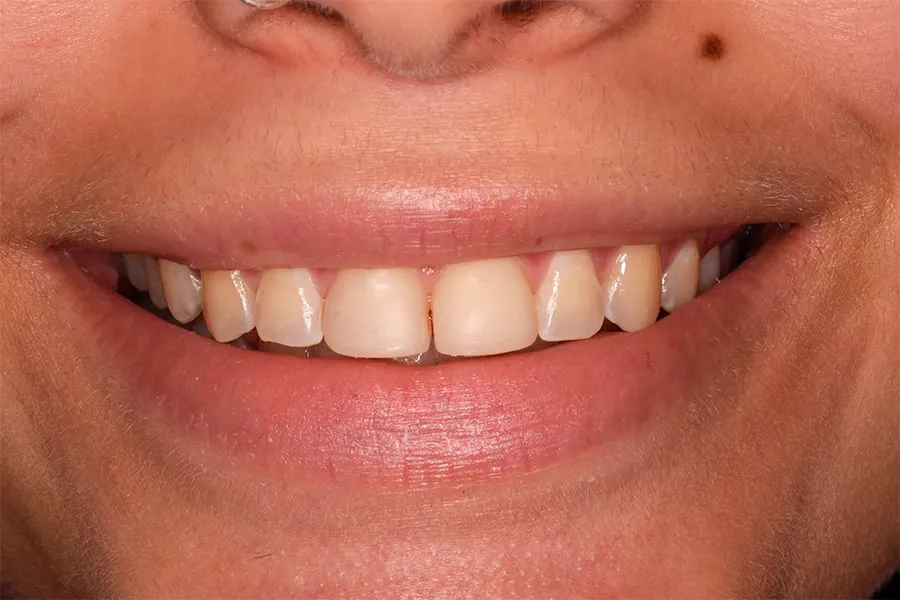
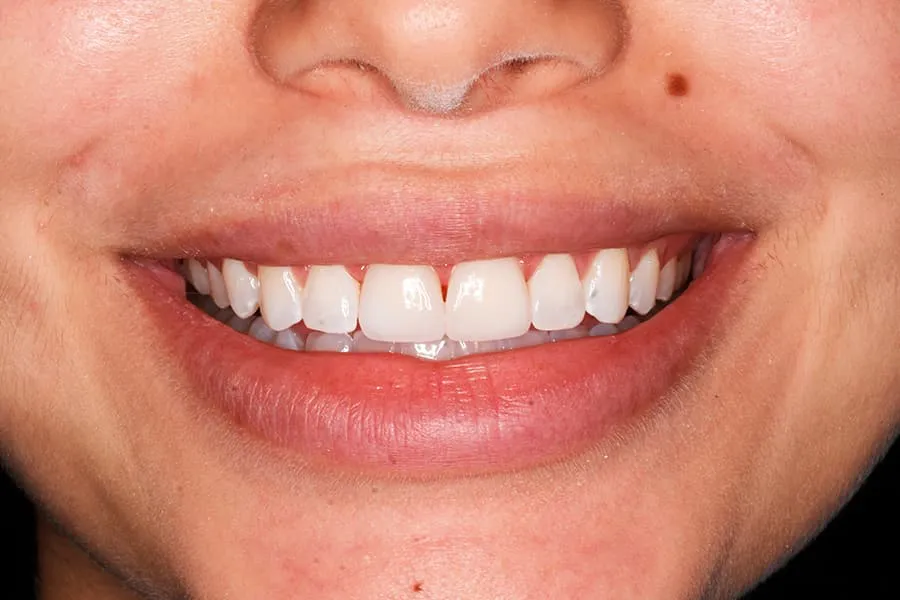
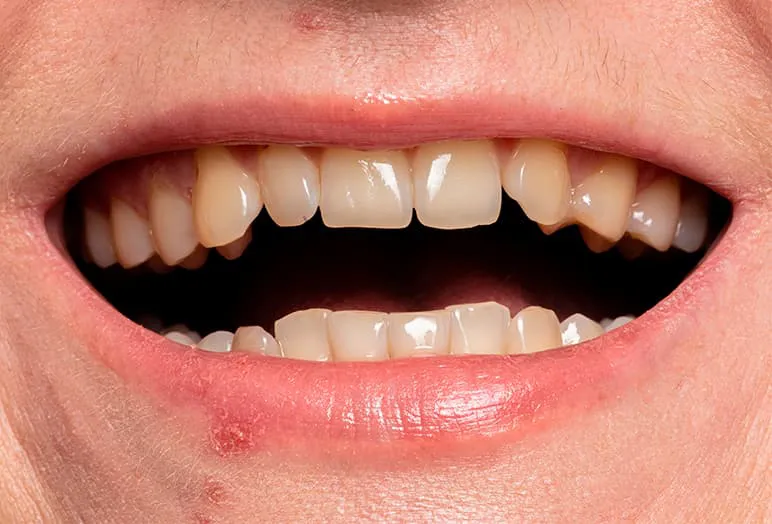
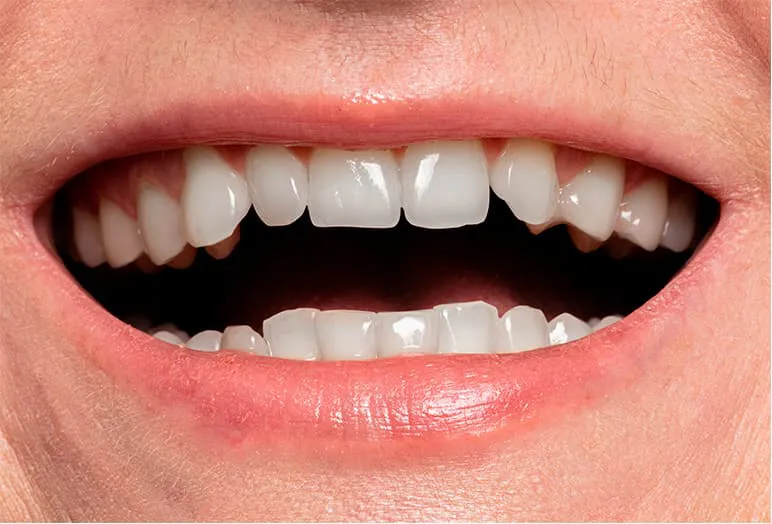


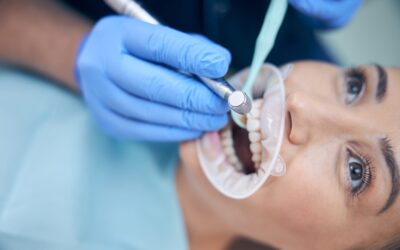

0 Comments